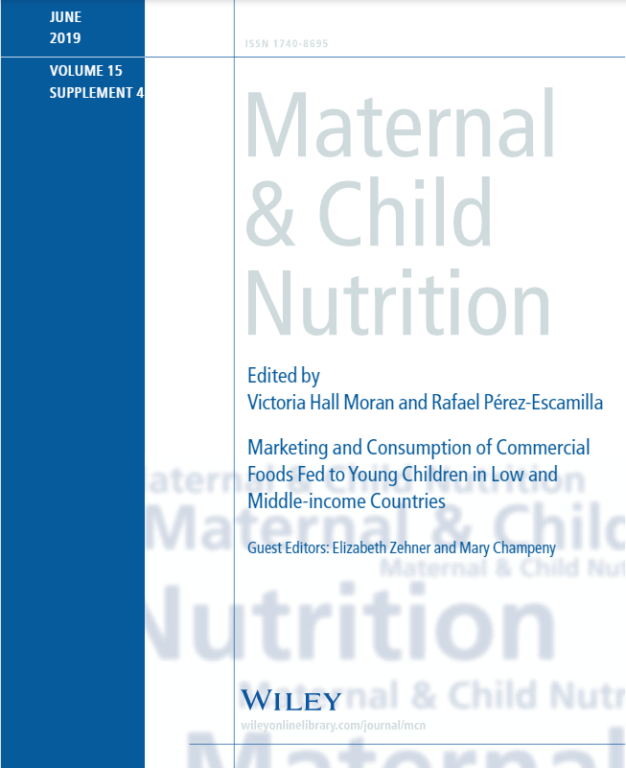This article was published in the Maternal & Child Nutrition Supplement: Marketing and Consumption of Commercial Foods Fed to Young Children in Low and Middle‐income Countries.
Access abstract in Khmer and French.
Abstract: Introducing breast milk substitutes (BMS) in the first days after birth can increase infant morbidity and reduce duration and exclusivity of breastfeeding. This study assessed determinants of BMS feeding among newborns in delivery facilities in Phnom Penh, Cambodia, and Kathmandu Valley, Nepal. Cross‐sectional surveys were conducted among mothers upon discharge from health facilities after delivery: 304 mothers in Kathmandu Valley and 306 mothers in Phnom Penh participated. On the basis of a conceptual framework for prelacteal feeding, multivariable logistic regression was used to identify factors associated with BMS feeding prior to facility discharge. In both Phnom Penh and Kathmandu Valley, feeds of BMS were reported by over half of mothers (56.9% and 55.9%, respectively). Receiving a health professional’s recommendation to use BMS increased the odds of BMS feeding in both Kathmandu Valley and Phnom Penh (odds ratio: 24.87; confidence interval [6.05, 102.29]; odds ratio: 2.42; CI [1.20, 4.91], respectively). In Kathmandu Valley, recommendations from friends/family and caesarean delivery were also associated with BMS use among mothers. Early initiation of breastfeeding and higher parity were protective against the use of BMS in Kathmandu Valley. Breastfeeding support from a health professional lowered the odds of BMS feeding among newborns. Exposure to BMS promotions outside the health system was prevalent in Phnom Penh (84.6%) and Kathmandu Valley (27.0%) but was not associated with BMS feeds among newborns. Establishment of successful breastfeeding should be prioritized before discharging mothers from delivery facilities, and health professionals should be equipped to support and encourage breastfeeding among all new mothers.
Authors: Mary Champeny, Alissa M. Pries, Kroeun Hou, Indu Adhikary, Elizabeth Zehner & Sandra L. Huffman
View Resource
